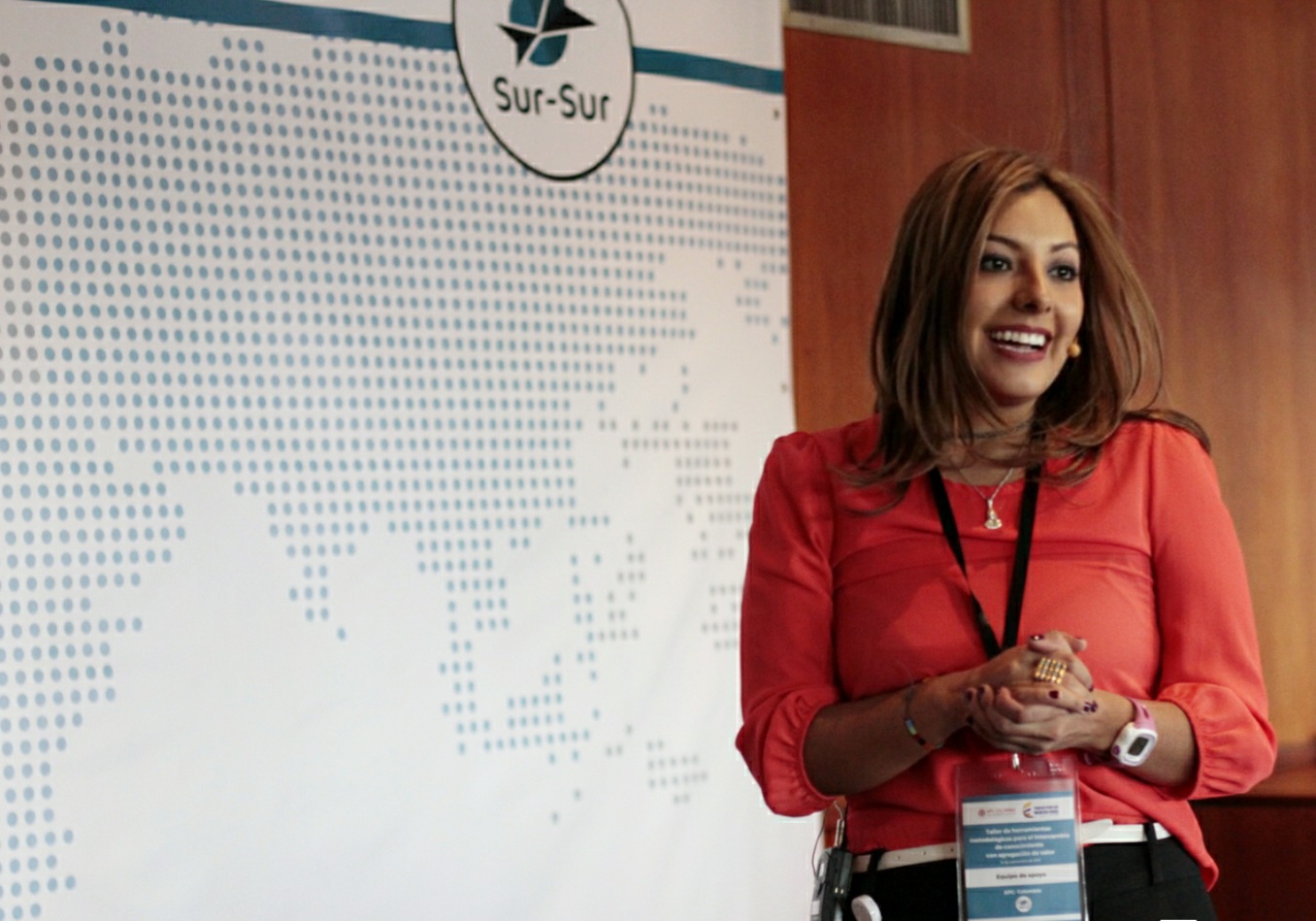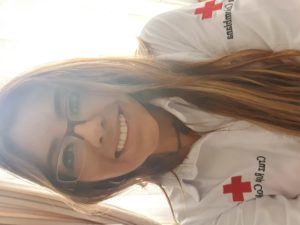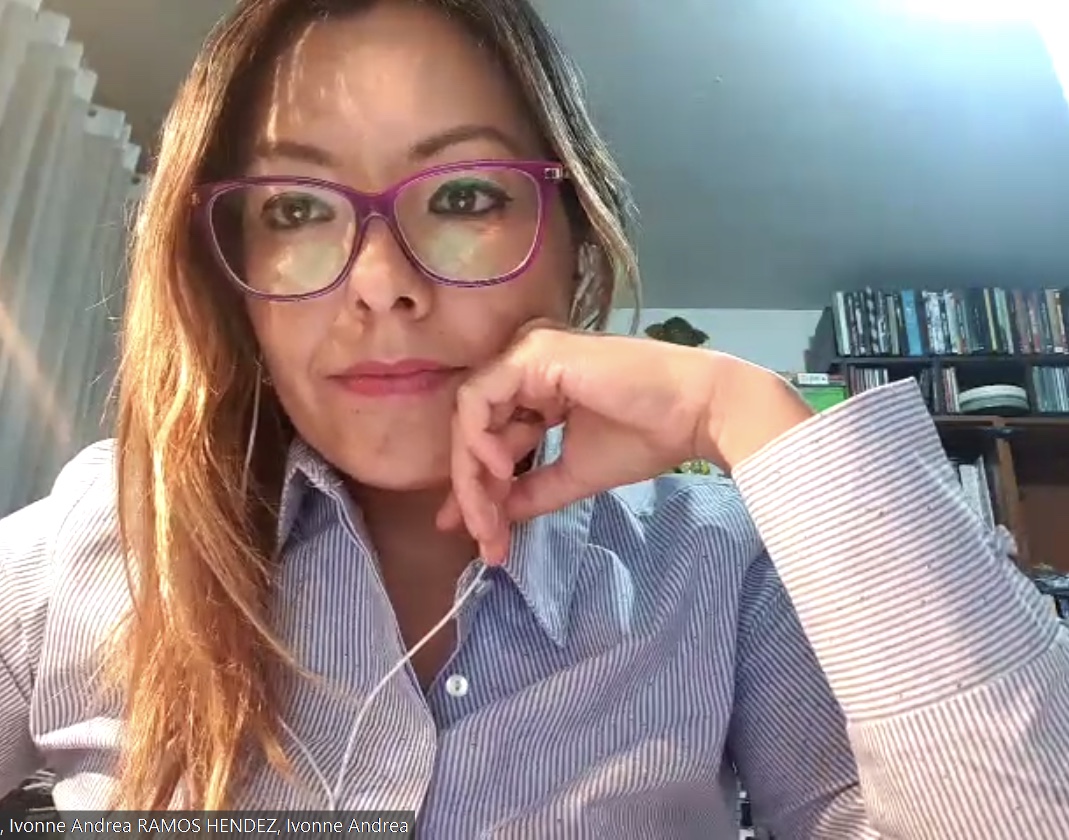
[People in KDIS] Ivonne Ramos (2020 MPM)
- Date 2020-11-24 00:41
- CategoryStory
- Hit2383

Ivonne Ramos (MPM 2020) newly joined KDI School this fall semester. This means that, unfortunately, she could not come all the way to Korea due to the COVID-19 pandemic. She had no choice but to stay in Colombia and take classes at midnight. Although it must be tough and tiring due to the time difference, she actively participates in every class. Let us find out what makes her study this hard with the following questions and answers.
Please share your previous job experience.
 For the past 13 years, I have been working for the Colombian government in diverse public institutions, mostly in positions at the national level related to international cooperation for development, especially south-south cooperation, and humanitarian assistance. Currently, I work for the Colombian Presidential Agency of International Cooperation as a government official in charge of the coordination of humanitarian affairs with the United Nations system and other multilateral organizations. Just before joining KDI, my main responsibility was managing official development assistance and other foreign assistance received by Colombia to attend to COVID-19, which was essentially a very challenging experience not only due to the worldwide overdemand of supplies to face the pandemic, but to the resource mobilization constraints in terms of time, budget, and logistics. Finally, because I am passionate about disaster risk management, I serve as a Colombian Red Cross volunteer and occasionally provide advice on international humanitarian aid in academic and professional scenarios.
For the past 13 years, I have been working for the Colombian government in diverse public institutions, mostly in positions at the national level related to international cooperation for development, especially south-south cooperation, and humanitarian assistance. Currently, I work for the Colombian Presidential Agency of International Cooperation as a government official in charge of the coordination of humanitarian affairs with the United Nations system and other multilateral organizations. Just before joining KDI, my main responsibility was managing official development assistance and other foreign assistance received by Colombia to attend to COVID-19, which was essentially a very challenging experience not only due to the worldwide overdemand of supplies to face the pandemic, but to the resource mobilization constraints in terms of time, budget, and logistics. Finally, because I am passionate about disaster risk management, I serve as a Colombian Red Cross volunteer and occasionally provide advice on international humanitarian aid in academic and professional scenarios.
What are the courses you are taking this semester? Is there any challenge you face due to the time difference?
As an MPM student, I’m taking core courses such as Public Organizations and Management (at midnight), Policy Process Analysis (at 4 am), and Qualitative Methods (from midnight to 3 am). I’m taking two language-driven courses (in a more normal schedule in the evening): Korean Language and Culture and Language in Public Policy and Management. Despite the 13-hour time zone difference between Colombia and Korea, KDI’s academic community has been amazingly supportive with students overseas, providing us with needed materials and adjusting their pedagogic means to help us reach our academic goals and make us feel as if we were on campus.
What do you expect the most from KDI School?
I chose KDI School because it is the number-one global think tank in the international development field. In this sense, KDI School offers a major capacity-building environment for public officials in which I have the opportunity to expand my current management skills toward acquiring rigorous and applicable academic tools to design and review public policies in my field.
I’m sure you want to come to Korea! If you can, what do you want to do or where do you want to go?
South Korea is not only an attractive case study within international development, but it also represents an interesting merging of history, culture, and societal pursuits that shaped today''s nation. Because folkloric heritage really holds my attention when traveling, besides Seoul, I would like to go to the temples and museums located at Gyeongju, Andong, and Jeonju, cities that preserve traditional culture manifestations through their ancient pagoda-style architecture, diverse gastronomy, and characteristic Buddhist art.
What are your vision of life? What motivates you to study?
Colombia is facing a time in history in which, after signing a peace process agreement in 2016 (after 60 years of armed conflict between state forces and FARC’s guerrillas), the struggle remains toward a more equal and fair society to be rebuilt. All efforts must be made to reduce the existing poverty gaps, guarantee human rights at all levels, and foster a mutual understanding among the diverse interest groups.
In this context, the mission of government officials becomes relevant in order to properly prepare for crisis management and decision-making advisory under a core principle of legitimacy and the population’s well-being, thus proposing innovative and realistic solutions given the typical constraints of the political system: bureaucracy, corruption, and ineffectiveness.

As an international cooperation adviser, my main study motivation is gathering academic tools that complement empirical knowledge obtained during my career to enhance international cooperation processes in Colombia at a systematic level. By strengthening the capabilities of professionals involved in project management of north-south and south-south cooperation (to formulate initiatives that pertinently attend to critical issues), and by encouraging the measurement of key development contributions to national goals from international knowledge exchanges, a more comprehensive spectrum of the role of the Global South countries in development can be reached, thus diversifying a mere unilateral donor-recipient approach to a multistakeholder dimension.
Related News
No Contents.
